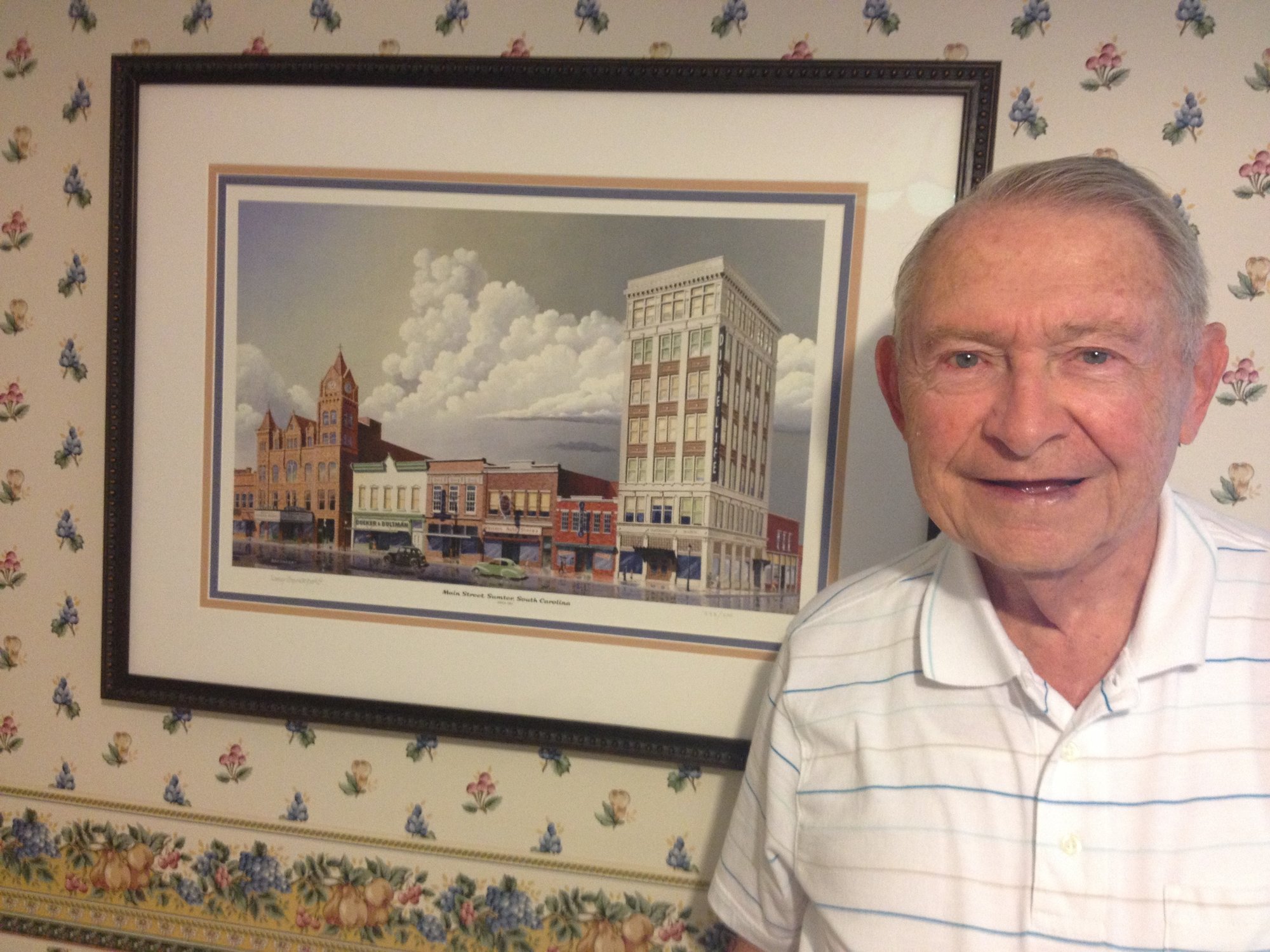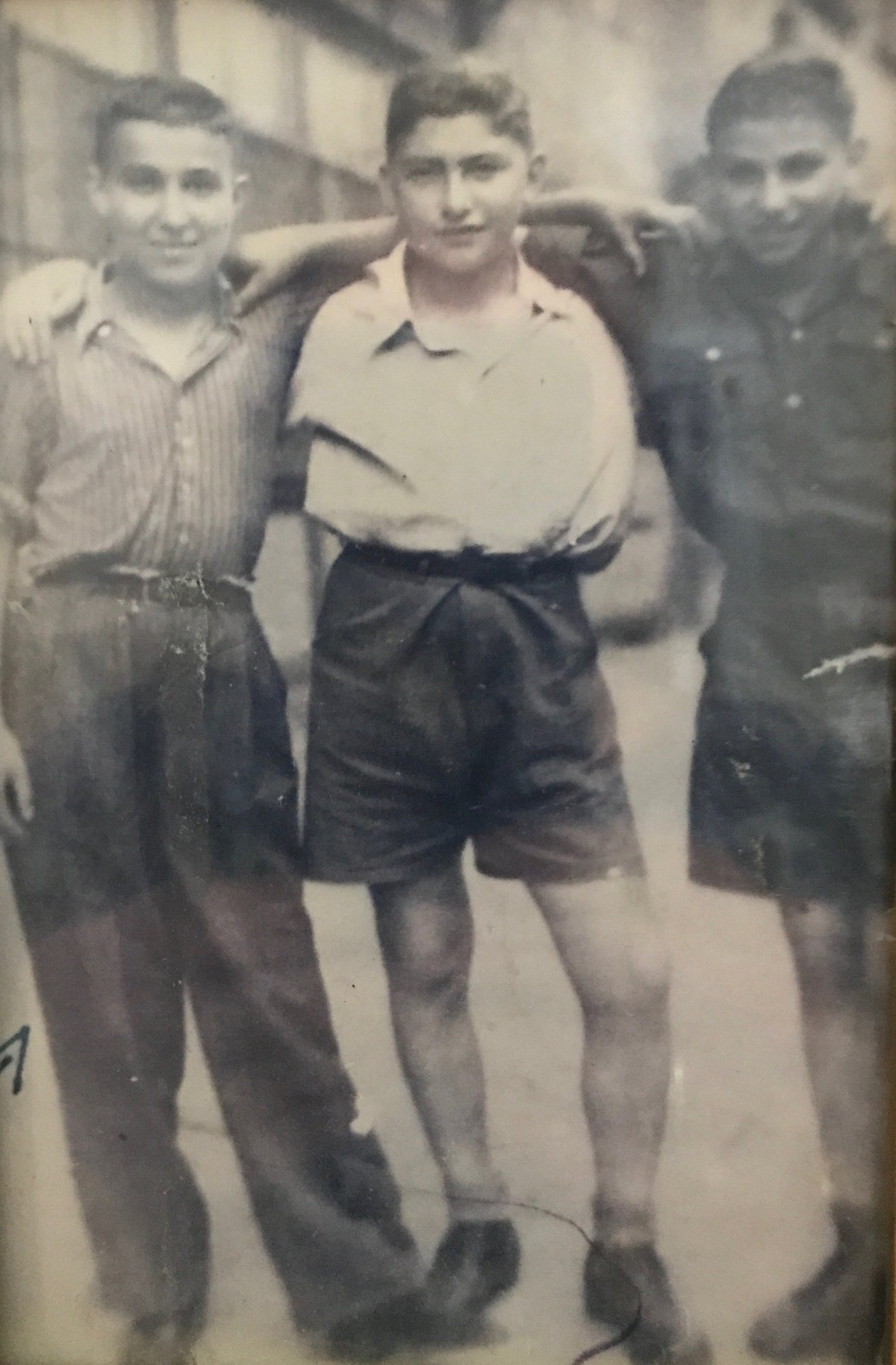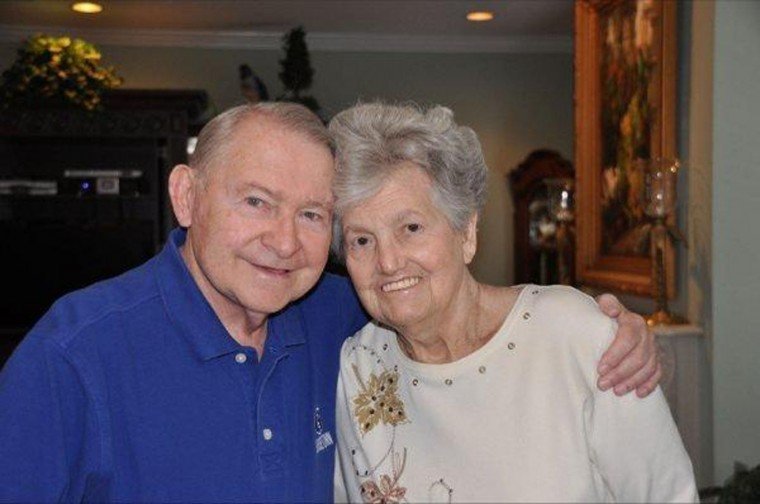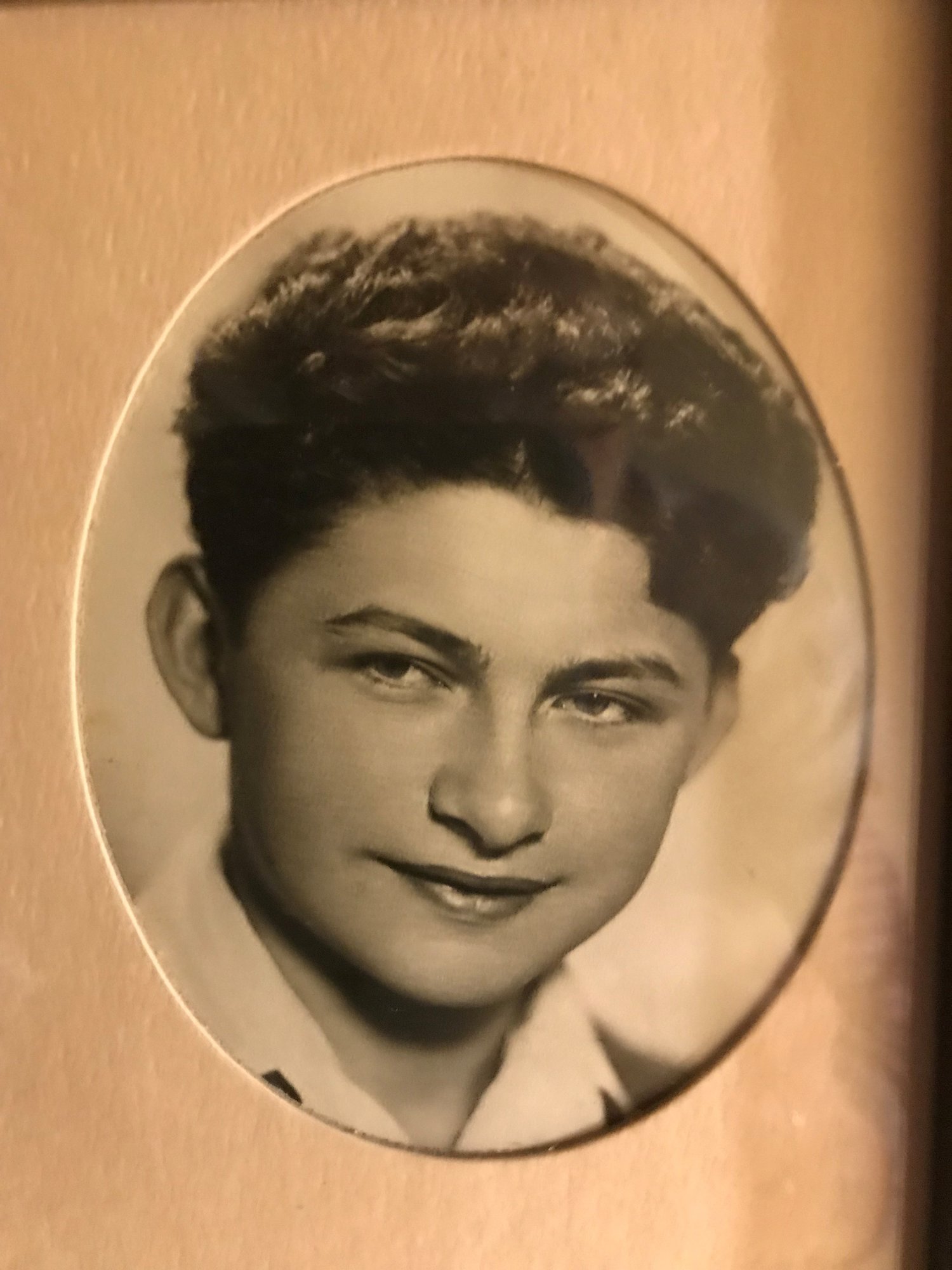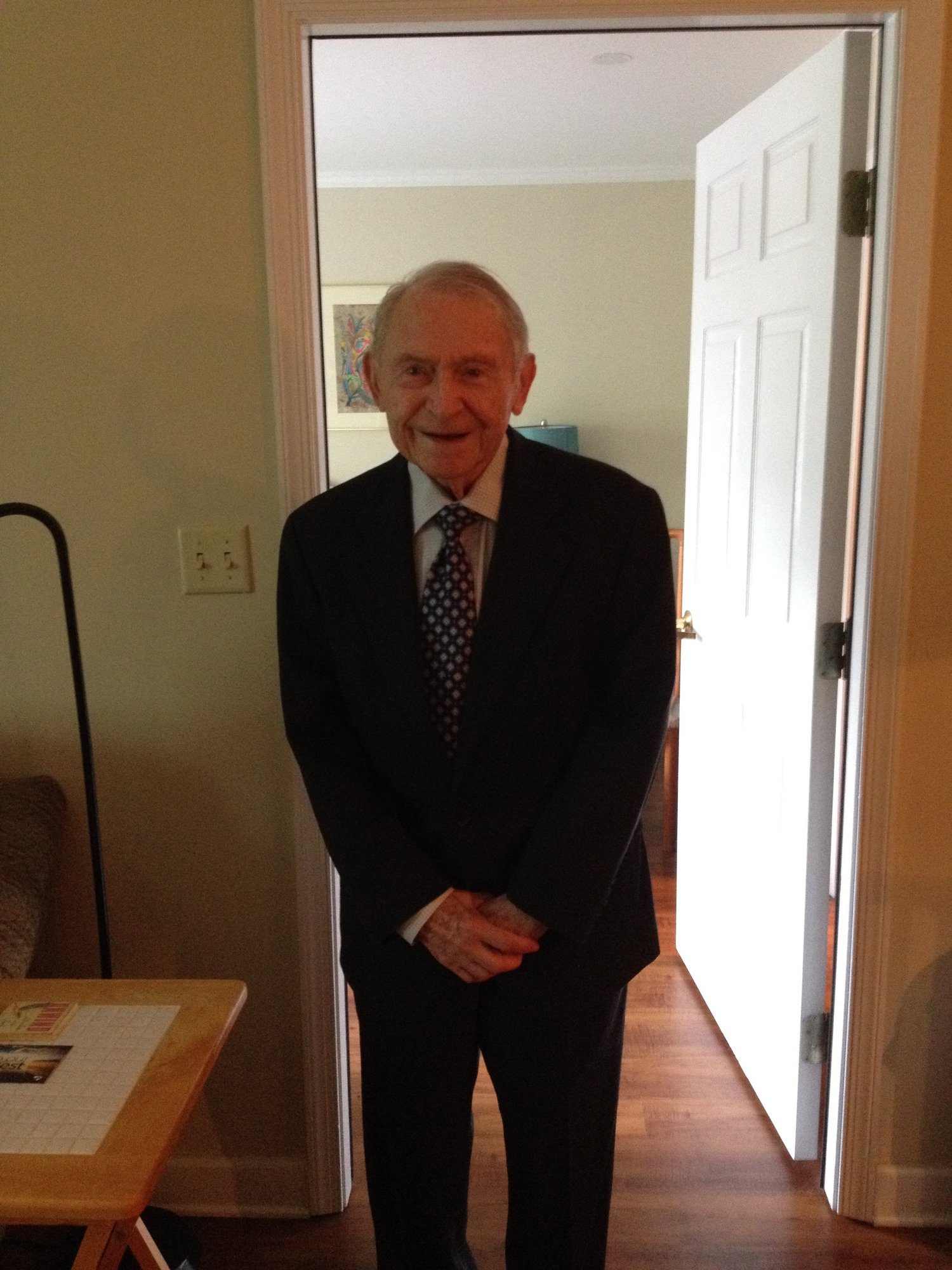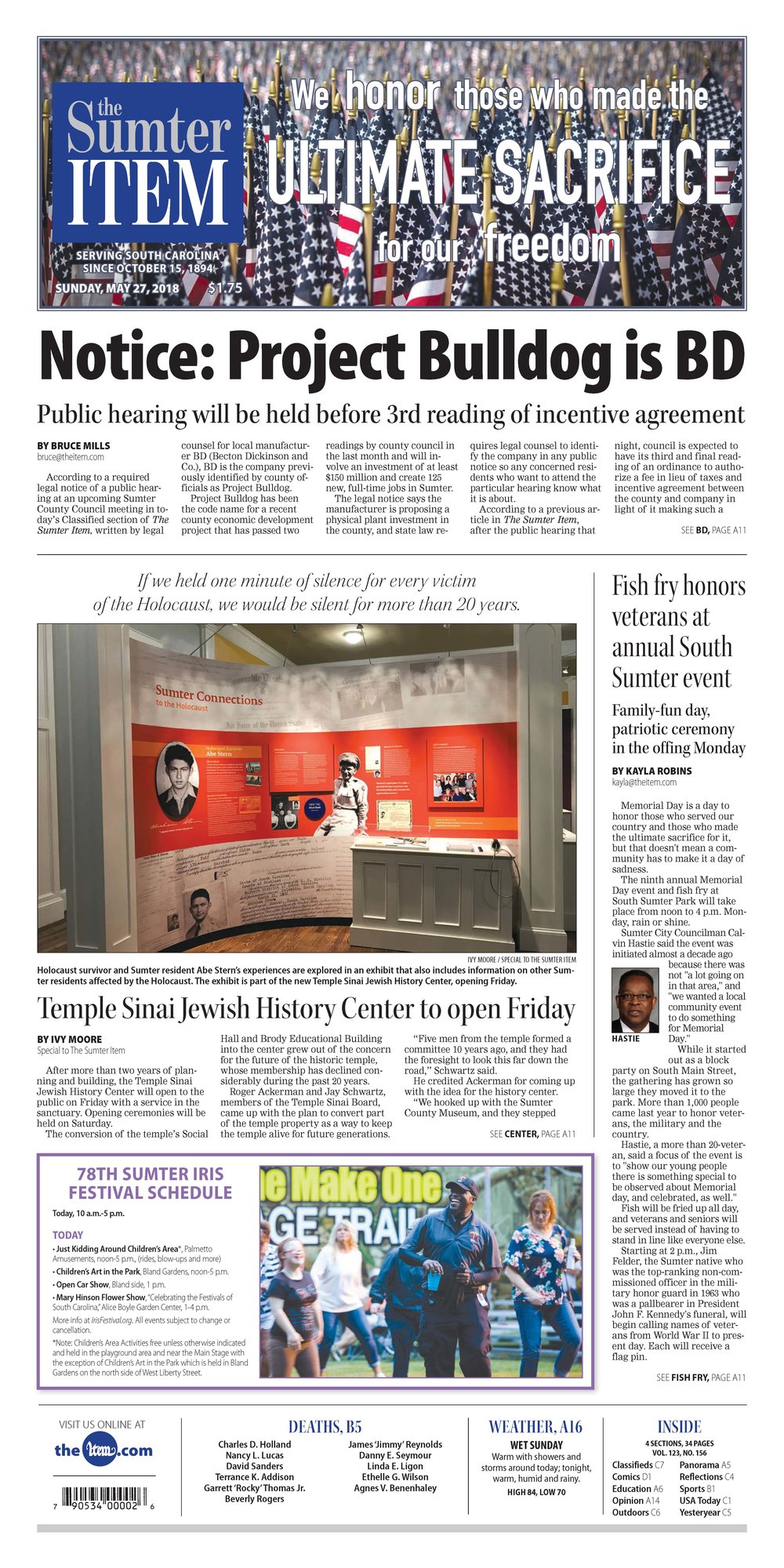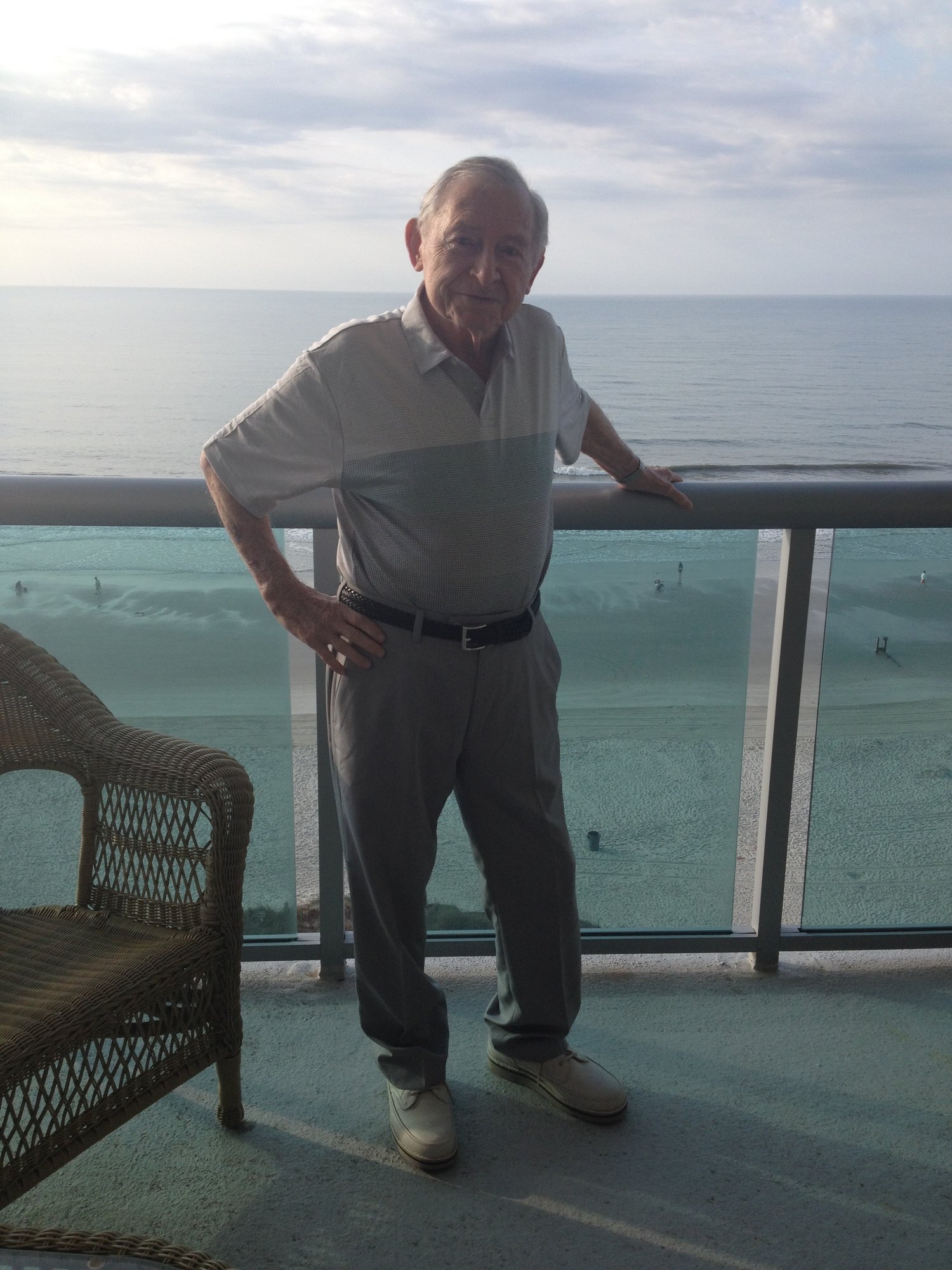Abe Stern, Sumter’s only Holocaust survivor, remembered as example of hope, heart
Some historical details were sourced from the Temple Sinai Jewish History Center's exhibit featuring Abe Stern. It is open to the public. To find out more, go to www.sumtercountymuseum.org.
kayla@theitem.com
Abe Stern knew his wife was pregnant before she did.
He got up for all the feedings. He wanted to.
"I asked him why he did that," said Donna Magaro, his oldest of three.
She was Stern's revenge on Hitler.
"He was supposed to kill all the Jews," she said, "but Dad said, 'Ha!'"
Nat came along two years later. Then Sharon. Then four grandkids.
Abe Stern didn't just survive the Holocaust. He lived.
By the time he died, he was no longer making his daily lunch date at Sunset Country Club with his wife, no longer owning and operating Jack's Shoes. He was no longer being taken to lunch weekly by a group of men who resolved to continue his outings after his wife passed and dementia took away his freedom to drive. He was no longer refusing to let anyone else pay.
"He had an infectious smile. And to know all he had been through in his youth, to overcome the worst-case scenario," said Melissa Bean, director of sales and marketing at Covenant Place of Sumter, the senior living and retirement home where Stern lived for his final five years. "You'd see him and say, 'Abie, how are you today?' And he'd always say, 'I'm better having seen you today.'"
He died on Nov. 19. He was 92.
Before Covenant, Stern worked at Jack's Department Store then took the reins from his father-in-law, running it as Jack's Shoes for more than 60 years after moving to Sumter in 1950.
"You knew his No. 1 intention was not selling shoes but establishing a relationship, with everyone, no matter the customer," said Ryan Shirah, a Sumter native who worked at Jack's to pay his way through college.
Stern made the store an oasis for students to gain work experience with a flexible schedule. He gave employees, many of them high schoolers and young adults, hourly wages so they didn't fight over commission. He was in the store daily until he retired.
"It was a given you worked until 6 p.m. on Saturdays, but he never made us work Sundays," Shirah said.
That's what Stern did. He helped.
Shirah "physically remembers" a couple conversations they had. One involved "complaining about school being overwhelming and probably the girl I was dating at the time." He remembers the burden of being a first-generation college student and wondering whether he'd graduate.
"It started with me saying to him, 'Mr. Stern, I just wish I knew what things were going to be like in five to 10 years from now,'" Shirah said. "He looked at me and smiled and said, 'No you don't, Ryan. No you don't. What if you're not in it?' Then he told me about his family. I've always carried that. He was all of like 5-foot-2 and 10 feet tall at the same time."
MOVING FORWARD
Stern didn't talk about the Holocaust until later in life. You'd probably never know it defined his past. He manifested the kind of life he wanted his future to be, one full of light and love, where existence is vengeance, family is beauty. One where you won't hear an unkind word about him.
Abe Stern didn't just survive the Holocaust. He lived.
He came ashore of the United States in New York, but it wasn't for him. The Hollywood sign caught his eye, so he took the $30 he had in his pocket and headed west.
He worked a few jobs, but the 1929-born teen from Lodz, Poland, didn't speak English well. But he loved America.
To give back to the country that liberated him from a concentration camp, allowed him a place to live, to buy clothes and food, learn a profession and earn a wage, he and a survivor he befriended from Warsaw signed up to become airmen.
Eventually, the U.S. Air Force stationed him at Shaw Air Force Base in Sumter. That's where he met Rhea Edelsburg.
As the story goes, according to Magaro, Stern's oldest, he went to Temple Sinai, Sumter's only Jewish synagogue. But he was too busy with services to notice any pretty girl. Nothing a grandma can't fix.
"(My maternal) Grandma said, 'He's a young man, he's got to eat. I'll invite him for dinner,'" Marago said.
They were engaged soon after.
Magaro can't recall a single fight between her parents.
"Growing older, I was like come on, people have to argue," she said. "They just decided if there were any, it would be behind closed doors from the kids. They always held hands, said they loved each other."
Stern made up for lost time. Because he wasn't given a formal education, he read books. A lot of books. They were everywhere, Magaro said.
"Catholic priests thought he was Catholic because he could talk about everything. I don't care what religion, they thought Dad was it," she said.
He worked, but the kids knew when he got home at 6:15 p.m., everyone sits down for support.
"He'd say, 'This is my time with you,'" Magaro said. "He was always showing by example."
He made his kids go to college. They could flunk out, but they were going to try. All three went into a career related to education.
STERN'S STORY
There were signs he wanted - or needed - to tell his story.
Magaro's son, Stern's first grandchild, asked when he was 5 or 6 why "Grandaddy always talks to us like that?" He talked about sports but also "serious stuff." Important lessons about history.
"He was always teaching them something about life," Magaro said.
He removed the numbers tattooed into his arm. When Magaro asked why, he said didn't need to see them to remember.
He had always vowed never to go back to Poland and the concentration camps where he lost both his parents and, three weeks before liberation, his brother.
Then he turned 60 the year Princess Diana died. Something clicked.
He took his wife and two daughters, the ones who were supposed to be impossible, back to Poland. And he started telling his story.
He showed them his house - or the lot where it used to be - in Lodz, where he used to get bullied on his way to and from his private school for being Jewish. He showed them the house nearby that had the neighborhood's only phone. He showed them the ghetto they were forced to live in until 1941 when they were crammed into cattle cars and shipped to concentration camps.
He showed them Auschwitz and Birkenau, showed them where they slept on slats like sardines, the places where bins filled with toys, shoes, teeth.
He explained why his favorite place in the camps was the latrine, a concrete hole they were allowed to use twice a day. It was the only heated place around.
Stern, the youngest of six, was lucky, if that's what you want to call it. He was old enough to work and therefore not immediately killed. Stern's mother was sent straight to the gas chambers from the train. His father died at Dachau.
He was also "lucky" he was too weak to go on the "death march" as Nazis evacuated with defeat imminent. After hiding in a quarry for a few days with a couple dozen others, they emerged to find they'd been liberated.
After the war, he found his three sisters had all survived (one had died as an infant before the Holocaust), and he brought them to New York.
Magaro said dementia trapped her aunts' minds back in the camps. They thought doctors and their white coats were Nazi soldiers.
"Daddy never did that. He always had a smile on his face," she said. "Sumter is his home. And Covenant (Place) was his people. He'd always shake someone's hand, he just sometimes didn't remember to let go."
'A HAPPY MAN'
The thing about a story is once it's told, it can be retold. It can teach. It can live forever.
Stern always said he has the same as everyone else from the Holocaust, said Deane Ackerman. But her late husband, Roger, would tell him he's wrong. It's unique to Sumter.
Stern was one of the most active members of Temple Sinai and a major sponsor, according to Jay Schwartz, helping to preserve its future and legacy.
Schwartz and Roger Ackerman were among the group that took Stern to lunch when he could no longer drive. Schwartz said it was an honor to do it. Deane Ackerman said those men, dubbed Abe's Team, maybe got more out of it than Stern.
Ackerman's husband and Schwartz spearheaded the creation of the temple's Jewish History Center. Connecting it to the Sumter County Museum, when it opened in 2018, it was boasted as the only Holocaust museum between Atlanta and Richmond.
They dedicated it to Stern.
It seems unfair a person so kind should be enshrined in a museum exhibit featuring a dagger he took from a dead Nazi, photos of striped pajamas, stories of his family's murder. But that's a choice Holocaust victims were not afforded.
What Stern did get to choose was how he lived life after.
"He was a happy man," Ackerman said.
Abe Stern didn't just survive the Holocaust. He lived.
And now, to the people in whose memory he remains, there will be a person like him never again.
More Articles to Read

